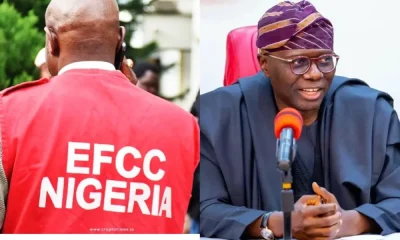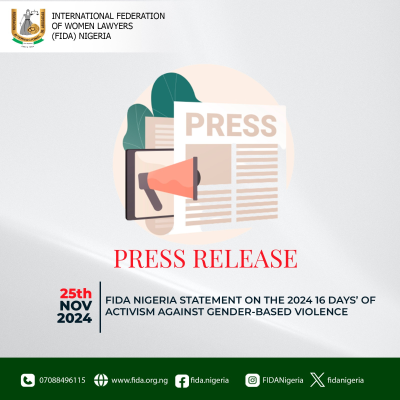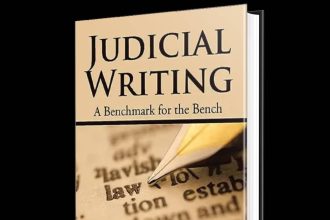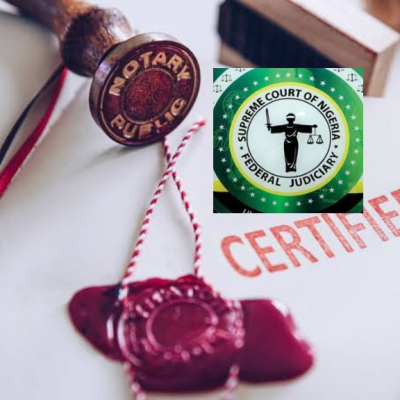The Federal High Court in Abuja has struck out a case filed to restrain the Economic and Financial Crimes Commission (EFCC) from arresting Lagos State Governor Babajide Sanwo-Olu at the conclusion of his tenure. The dismissal was ordered by Presiding Judge Joyce Abdulmalik on October 31, 2024, following a motion for discontinuance moved by Gbenga Femi Akande, counsel to Governor Sanwo-Olu.
EFCC: Details of the Case
The lawsuit, initiated by Darlington Ozurumba on behalf of Governor Sanwo-Olu, sought to block the EFCC from taking any legal action against the governor after his tenure ends on May 29, 2027. The suit argued that such an arrest would be unconstitutional and a violation of the governor’s fundamental rights to personal liberty and freedom of movement as enshrined in Sections 35(1) & (4) and 41(1) of the 1999 Constitution of Nigeria.
Specifically, the suit requested an order restraining the EFCC from:
- Harassing, intimidating, arresting, detaining, or interrogating Governor Sanwo-Olu.
- Prosecuting him in connection with activities during his tenure as governor.
EFCC: Court Proceedings and Dismissal
The case was dismissed after Akande, representing Governor Sanwo-Olu, filed a motion to withdraw the suit. The enrolled order dated October 31 indicated that only Akande was present in court during the proceedings.

However, EFCC counsel Hadiza Afegbua, who appeared on Tuesday expecting to argue the case, was surprised to learn that the suit had been struck out weeks earlier.
Reactions to the Suit
Lagos State Government
The Lagos State Government disassociated itself from the legal action, stating that Governor Sanwo-Olu had not authorized the filing of any such suit. Lagos State Attorney-General Lawal Pedro announced plans to investigate how the case was initiated without the governor’s knowledge. He affirmed that neither the governor nor his aides were under investigation by the EFCC.
Pedro said:
“Governor Sanwo-Olu is not under any investigation, and there is no existing threat of arrest by the EFCC. This case was not authorized by the governor or his administration, and we will look into how it came to court.”
EFCC’s Position
In its response, the EFCC described the lawsuit as speculative and baseless. A counter affidavit deposed by Ufuoma Ezire, a superintendent in the agency’s legal and prosecution department, categorically stated that the EFCC has never investigated, threatened, or planned to arrest Governor Sanwo-Olu or his staff.

The EFCC argued that the claims were conjectural and lacked any factual basis, further highlighting that the agency respects the rule of law and does not act arbitrarily.
Conclusion
The striking out of the suit has raised questions about the origin and intent of the legal action. While the Lagos State Government investigates the circumstances behind the unauthorized case, the EFCC has reiterated its commitment to transparency and adherence to the rule of law in its operations.
This case highlights the complexities surrounding post-tenure immunity for public officials and the need for clarity in handling matters related to anti-corruption investigations.









